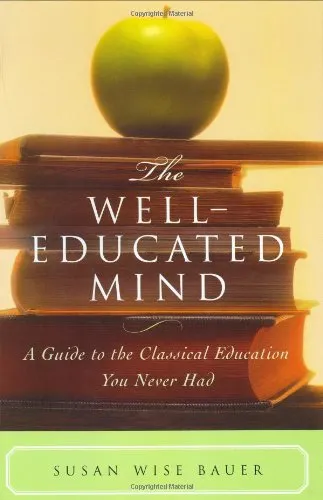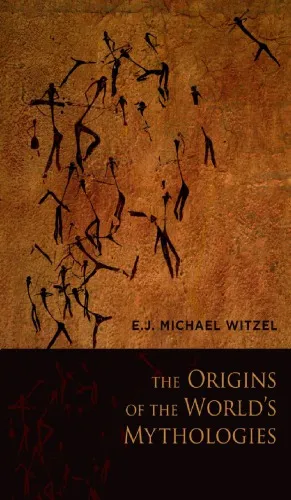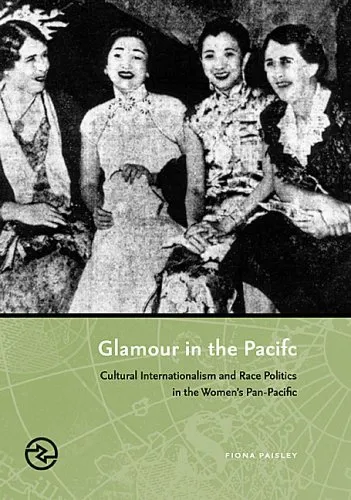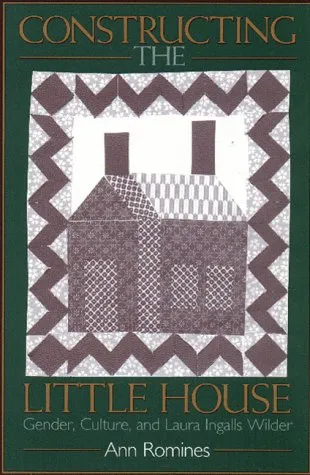\'\'Ces forces obscures de l\'âme\'\': Women, race and origins in the writings of Albert Camus. (Faux Titre)
4.8
بر اساس نظر کاربران

شما میتونید سوالاتتون در باره کتاب رو از هوش مصنوعیش بعد از ورود بپرسید
هر دانلود یا پرسش از هوش مصنوعی 2 امتیاز لازم دارد، برای بدست آوردن امتیاز رایگان، به صفحه ی راهنمای امتیازات سر بزنید و یک سری کار ارزشمند انجام بدینکتاب های مرتبط:
خلاصه تحلیلی کتاب
کتاب Ces forces obscures de l'âme: Women, race and origins in the writings of Albert Camus. (Faux Titre) اثری است پژوهشی که با رویکردی میانرشتهای، به بررسی عمیق بازنمایی زنان، جایگاه نژاد و مفهوم منشأ در آثار آلبر کامی میپردازد. نویسنده با دقتی آکادمیک و با اتکا به منابع اولیه و نقدهای معاصر، مباحثی را که غالباً در حاشیه نقد ادبی قرار دارند به متن میآورد.
این کتاب بهخصوص برای کسانی که علاقهمند به intersectional analysis در حوزه ادبیات فرانسه قرن بیستم هستند، ارزشمند است. تمرکز آن بر لایههای روانشناختی و اجتماعی آثار کامی و ارتباط آن با ساختارهای قدرت، آن را به مرجعی بیبدیل برای پژوهشگران و منتقدان تبدیل کرده است.
اطلاعات دقیق در مورد سال انتشار اثر در منابع موجود نیامده است و بنابراین به عنوان «اطلاعات نامشخص» ذکر میشود (منبع معتبر در دسترس نیست)، اما جایگاه آن در حوزه مطالعات انتقادی، مستقل از زمان انتشار، قابل توجه است.
نکات کلیدی و کاربردی
یکی از نکات کلیدی کتاب، شکافتن سکوتهای روایی کامی در مورد زنان و اقلیتهای نژادی است. این سکوتها نه تنها در بافت اجتماعی آثار، بلکه در ساختار روایی نیز بازتاب یافتهاند.
همچنین کتاب بر چالشهای موجود در مطالعات پسااستعماری تمرکز دارد و با رویکردی نقادانه، جایگاه منشأ و هویت را در تعامل با مفاهیم عدالت و اخلاق بررسی میکند.
خواننده با مطالعه این اثر، به ابزارهای فکری برای خوانش دوباره و انتقادی آثار کامی مجهز میشود؛ از جمله درک بهتر زمینههای فرهنگی و تاریخی که شخصیتهای او را شکل میدهند.
نقلقولهای ماندگار
در این بخش، نویسنده با انتخاب چند نقلقول برجسته، مخاطب را به تأمل در عمق اندیشههای کامی و بازتاب آن در محورهای کتاب دعوت میکند.
«شدت سکوتهای نویسنده، گاه از صدای بلندتر اثرگذارتر است.» نامشخص
«هویت، سرزمینی نیست که پرچمی بر آن افراشته شود، بلکه مسیری است که هر فرد در گذر زمان میپیماید.» نامشخص
چرا این کتاب اهمیت دارد
اهمیت این کتاب در پرکردن شکافهای پژوهشی پیرامون آثار آلبر کامی نهفته است. در حالی که بسیاری از نقدهای ادبی بر فلسفه یا روایتهای اگزیستانسیالیستی او تمرکز دارند، این اثر بهطور خاص، ابعاد اجتماعی و فرهنگی مغفولمانده را برجسته میسازد.
با توجه به روند رو به رشد مطالعات gender و race در حوزه نقد ادبی، این کتاب تنها به گذشته نمینگرد، بلکه ابزاری برای گفتوگوهای معاصر نیز فراهم میکند. پژوهشگران میتوانند از بینشهای ارائهشده در آن، در تحلیل آثار امروزین بهره گیرند.
نتیجهگیری الهامبخش
کتاب Ces forces obscures de l'âme: Women, race and origins in the writings of Albert Camus. (Faux Titre) نهتنها دریچهای تازه به درک آثار کامی میگشاید، بلکه به خواننده جسارت طرح پرسشهای نو میدهد. در این مسیر، مخاطب دعوت میشود تا فراتر از روایتهای متداول بیندیشد و لایههای پنهان معنا را کشف کند.
اگر شما از علاقهمندان به نقد عمیق ادبیات و بررسی تقاطعهای جنسیت و نژاد هستید، خواندن این اثر میتواند آغازگر گفتگوهایی پرثمر در محافل علمی و فرهنگی باشد. مطالعه یا
Analytical Summary
This scholarly work, 'Ces forces obscures de l'âme': Women, race and origins in the writings of Albert Camus. (Faux Titre), offers an incisive investigation into the nuanced, often overlooked dimensions of Camus’s oeuvre. Written with academic rigor and an acute sensitivity to historical context, the book examines the intersections of gender, race, and origin within Camus’s narratives, reframing them through the lenses of postcolonial theory and feminist critique.
Albert Camus remains one of the most influential literary figures of the 20th century, known for his philosophical engagement with absurdism and moral responsibility. Yet, in many critical studies, the representation of women, racialised identities, and issues of colonial heritage in his work have been marginalised. This volume redresses that gap by methodically analyzing how these “forces” operate within his characters, his plot structures, and even in his philosophical propositions.
Through a combination of close textual readings and contextual analysis, the author charts Camus’s negotiation between personal experience—shaped in Algeria during French colonial rule—and broader intellectual trends. The book situates his literary production within the socio-political realities of his time, revealing how origin stories and racial dynamics complicate—and sometimes undermine—Camus’s proclaimed universalism.
Key Takeaways
Readers will gain transformative perspectives on Camus’s works, unlocking layers of meaning that extend beyond existential philosophy into the realms of cultural identity and gendered experience.
Firstly, the analysis bridges the gap between Camus’s philosophical themes and the socio-historical realities of French Algeria. It underscores how colonial ideology permeated his narratives, consciously or subconsciously.
Secondly, the book demonstrates the role of female characters beyond the symbolic; they emerge as complex entities whose portrayal reflects broader societal tensions and gender politics of the era.
Thirdly, readers encounter a critical exploration of origin—both in terms of personal heritage and collective identity—showing how these foundations interact with notions of the absurd and moral choice.
Lastly, the volume encourages nuanced engagement, inviting scholars and professionals to reassess canonical texts in light of intersectional concerns, thereby broadening the academic discourse on Camus.
Memorable Quotes
While this book is a work of literary criticism rather than a collection of aphorisms, several compelling statements within its analysis resonate deeply with readers.
“Interpreting Camus requires attention to the silences and shadows that inhabit his prose.”Unknown
“Colonial identity shapes the very contours of the absurd.”Unknown
“Female presence in Camus’s work is not mere ornamentation, but a lens for ethical inquiry.”Unknown
Why This Book Matters
The lasting significance of 'Ces forces obscures de l'âme': Women, race and origins in the writings of Albert Camus. (Faux Titre) lies in its rigorous, intersectional approach to a literary giant’s work.
While countless studies have illuminated Camus’s philosophical contributions, few have examined the sociocultural elements with such focus. This book addresses that need, bringing to light conversations about colonial power structures, racial dynamics, and the representation of women that are essential for a comprehensive understanding of his legacy.
For academics and professionals engaged in literary criticism, Francophone studies, and postcolonial theory, it provides a valuable case study in how intersectional analysis enriches and complicates canonical interpretations. Its careful methodology also offers a model for future research in comparative literature and cultural history.
Inspiring Conclusion
In reflecting on the intricate analyses within 'Ces forces obscures de l'âme': Women, race and origins in the writings of Albert Camus. (Faux Titre), one sees the enduring relevance of questioning the silent undercurrents in literature.
This book stands as an invitation to read Camus anew—considering not only the philosophical grandeur of the absurd, but also the human complexities of race, origin, and gender that shade his texts. By engaging with the arguments presented here, scholars, professionals, and serious readers can expand their interpretive horizons.
Whether you choose to delve into its pages for academic research, intellectual enrichment, or to spark informed discussion, the work
دانلود رایگان مستقیم
شما میتونید سوالاتتون در باره کتاب رو از هوش مصنوعیش بعد از ورود بپرسید
دسترسی به کتابها از طریق پلتفرمهای قانونی و کتابخانههای عمومی نه تنها از حقوق نویسندگان و ناشران حمایت میکند، بلکه به پایداری فرهنگ کتابخوانی نیز کمک میرساند. پیش از دانلود، لحظهای به بررسی این گزینهها فکر کنید.
این کتاب رو در پلتفرم های دیگه ببینید
WorldCat به شما کمک میکنه تا کتاب ها رو در کتابخانه های سراسر دنیا پیدا کنید
امتیازها، نظرات تخصصی و صحبت ها درباره کتاب را در Goodreads ببینید
کتابهای کمیاب یا دست دوم را در AbeBooks پیدا کنید و بخرید
1342
بازدید4.8
امتیاز0
نظر98%
رضایتنظرات:
4.8
بر اساس 0 نظر کاربران
Questions & Answers
Ask questions about this book or help others by answering
No questions yet. Be the first to ask!















